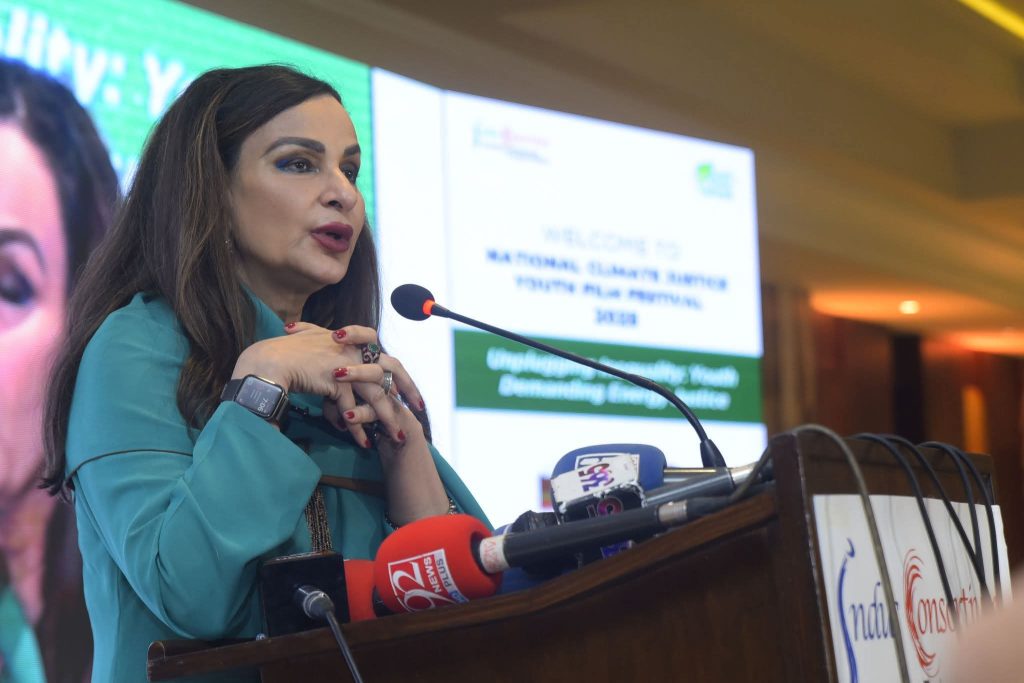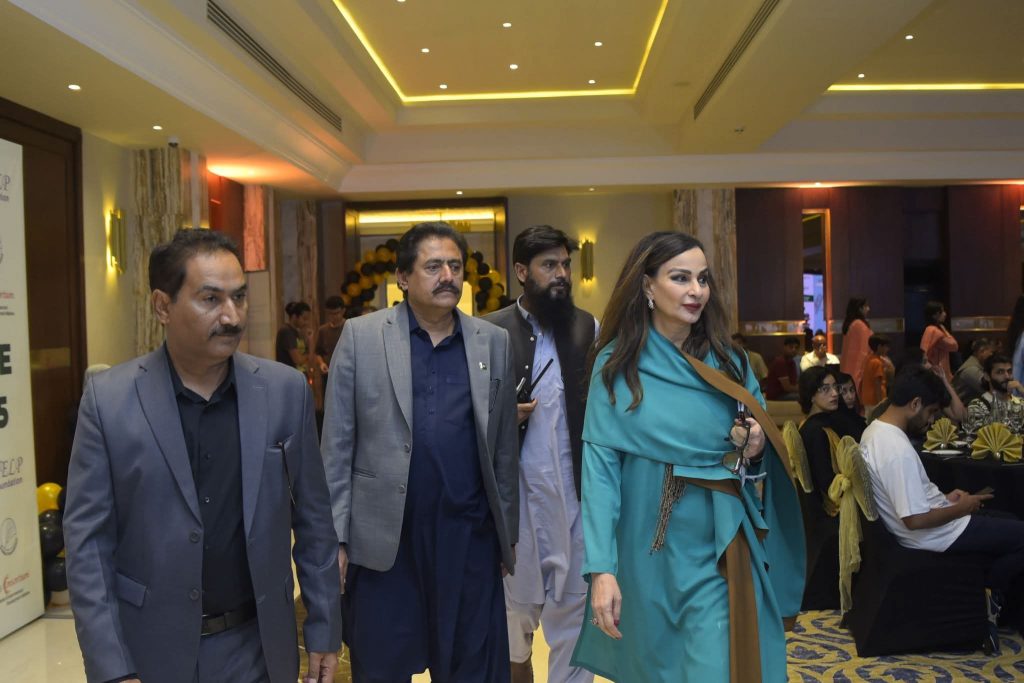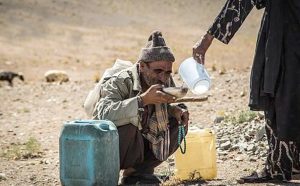
By Razak Khatti
Islamabad, August 20, 2025 – Indus Consortium, an organisation focused on climate change, humanitarian, and development issues, organised the National Climate Justice Youth Film Festival 2025 in Islamabad on Monday, bringing together students from across Pakistan to showcase their perspectives on climate change through the power of film.
The event, held at a local hotel, was attended by parliamentarians, civil society representatives, academics, diplomats and climate activists. It was the third annual film festival by the organisation on climate justice and clean energy. This year’s film festival topic was ‘Unplugging Inequality: Youth Demanding Energy Justice.’
Senator Sherry Rehman, Chair of the Senate Standing Committee on Climate Change, was the chief guest at the festival. She was joined by Senator Poonjo Mal Bheel, Member of the Senate Standing Committee on Power.
Senator Sherry Rehman criticised developed nations for fuelling climate change, saying Pakistan, which emits less than one per cent of global carbon, is paying the price for their industrial greed. She called climate change a global crisis created by the industrialised world but disproportionately devastating for vulnerable countries like Pakistan.
Crop burning, brick kilns, and unchecked urban development are killing our people, she said. Citing the 2022 floods that submerged one-third of Pakistan and recent disasters that killed hundreds across 63 districts, she termed the situation “climate injustice” as $7 trillion continues to be funnelled into fossil fuel subsidies worldwide.
Sherry Rehman warned that record-breaking heatwaves, rising seas, and deforestation threaten Pakistan’s agriculture, livestock, and human survival. She urged immediate domestic action, including expanding forest cover, regulating urban growth, encouraging low-plastic startups, and embracing renewable energy.
“Pakistan is already the world’s sixth-largest solar user. Sindh is investing heavily in clean energy. We must build resilience with what we have and protect our people,” she stressed, adding that saving nature is now a matter of national survival.
Senator Ponjo Mal Bheel congratulated the organisers for creating a platform that allowed young people to express their views on energy justice through documentaries. He stressed that art could play a vital role in encouraging youth to engage with issues of climate and sustainability. Highlighting the situation in Thar, he pointed out that electricity shortages of up to 18 hours a day leave students and young entrepreneurs without essential facilities. “In today’s world, electricity is a basic human right. Without it, our youth cannot study, work, or participate in e-business. If clean, affordable energy is not provided, they will be left with no choice but to rely on scarce government jobs,” he warned.

The festival featured participation from students representing six universities from the four provinces. University of Balochistan Quetta, University of Engineering and Technology Peshawar, and Pir Mehr Ali Shah Arid Agriculture University Rawalpindi won the first, second and third prizes, respectively. Other participant universities included University of Sindh Jamshoro, Sindh Agriculture University Tando Jam, and Muhammad Nawaz Sharif University of Agriculture Multan. Films explored the human impacts of climate change and the urgency of a just energy transition.
Earlier, Indus Consortium Chairman Liaqat Ali welcomed the guests and students, saying the festival had become a flagship platform for youth to share their creativity and contribute to the climate justice movement. He noted that Pakistan is increasingly vulnerable to heatwaves, droughts and flash floods, which threaten communities, ecosystems, and the economy. He called for urgent action to promote renewable energy, restore ecosystems such as the Indus Delta, and strengthen green financing.
The festival concluded with a call to place youth at the centre of climate action and energy transition, recognising them as active drivers of change rather than passive recipients of policy decisions.




